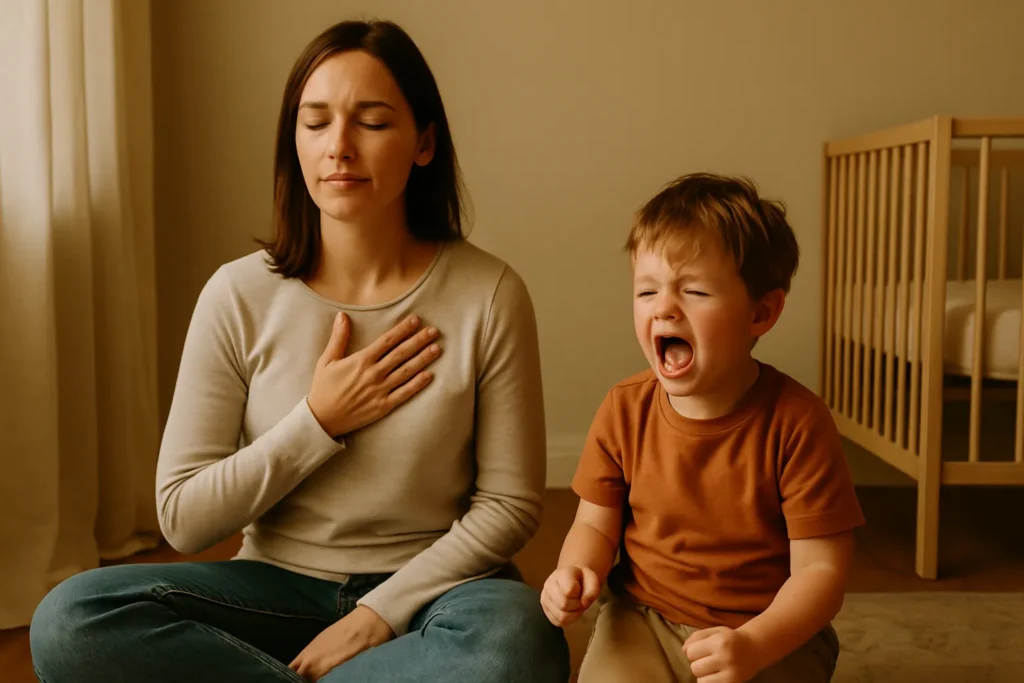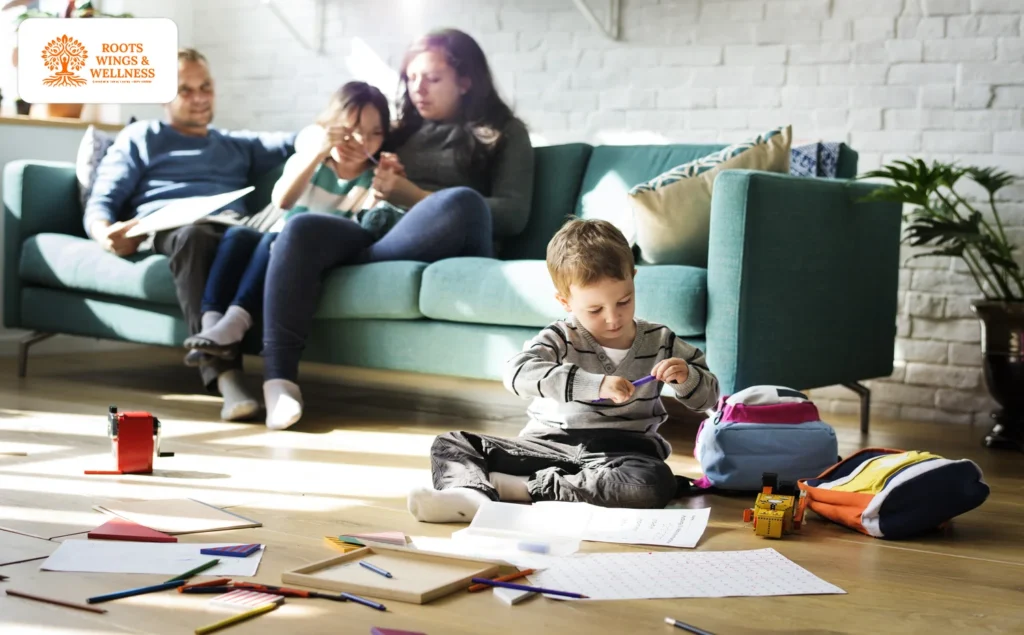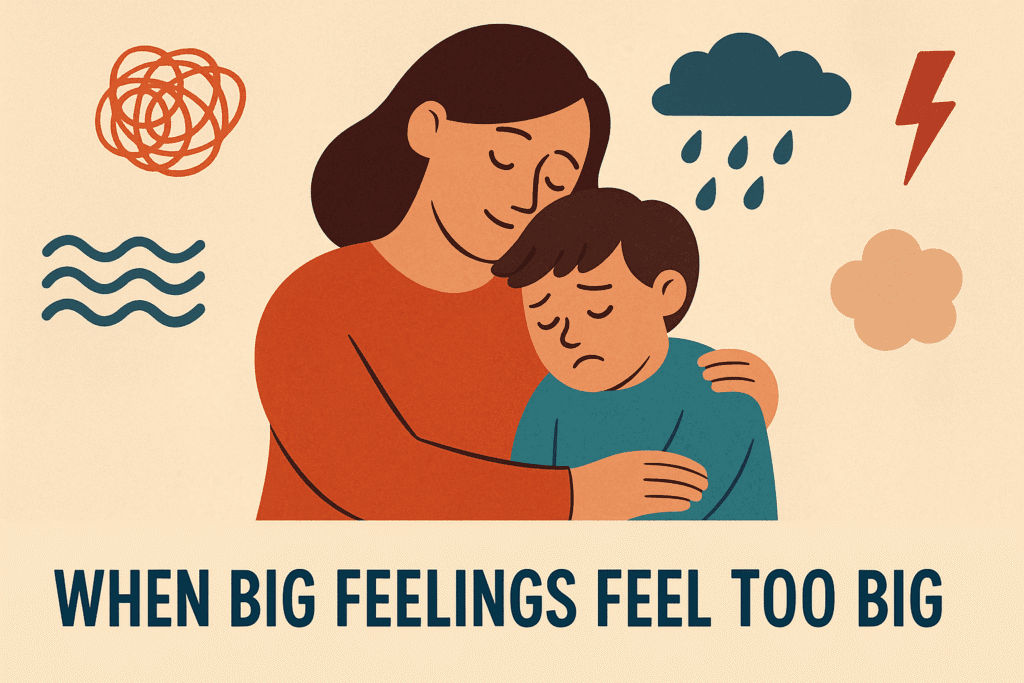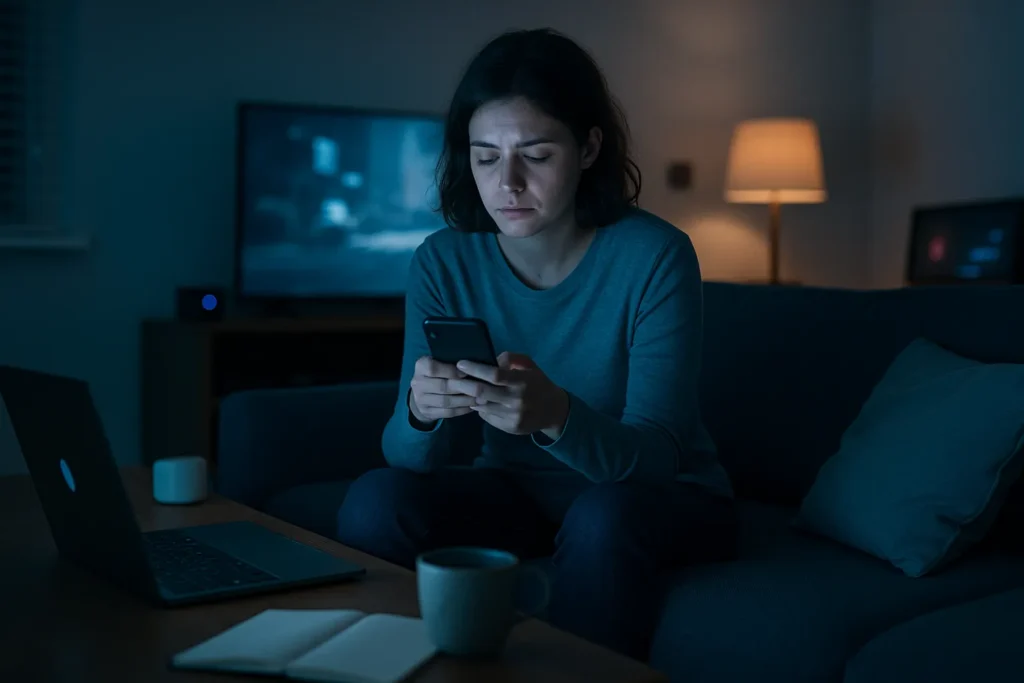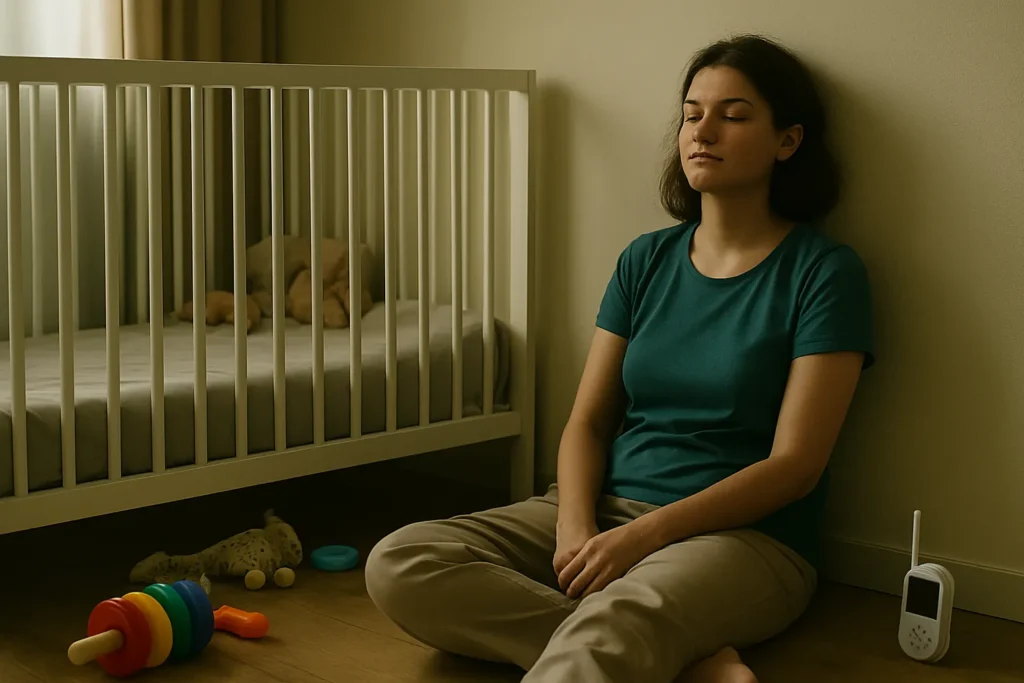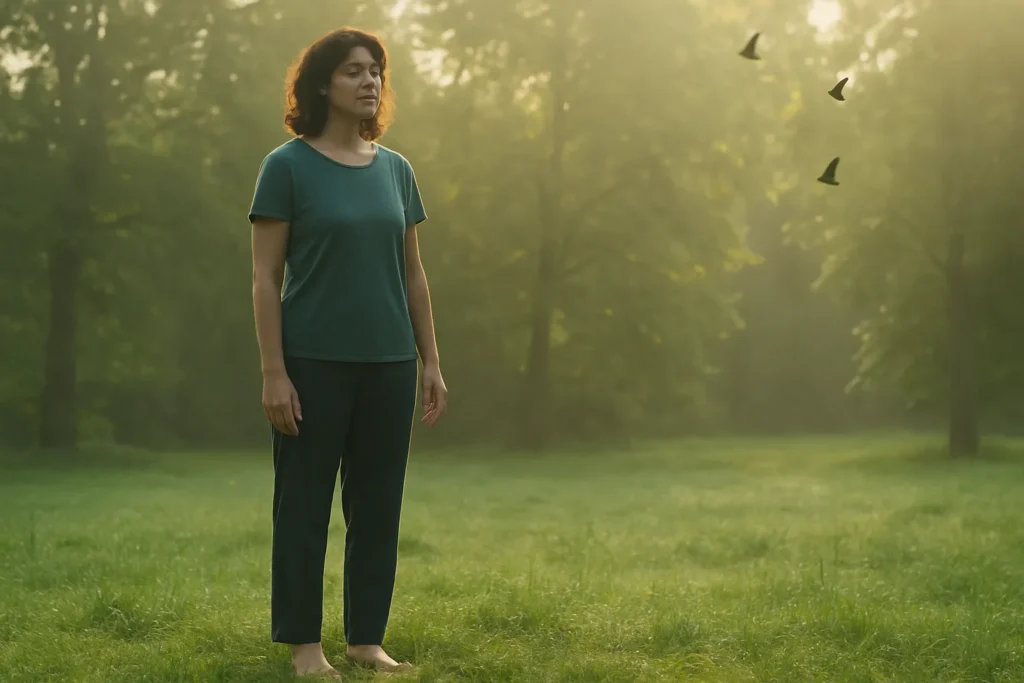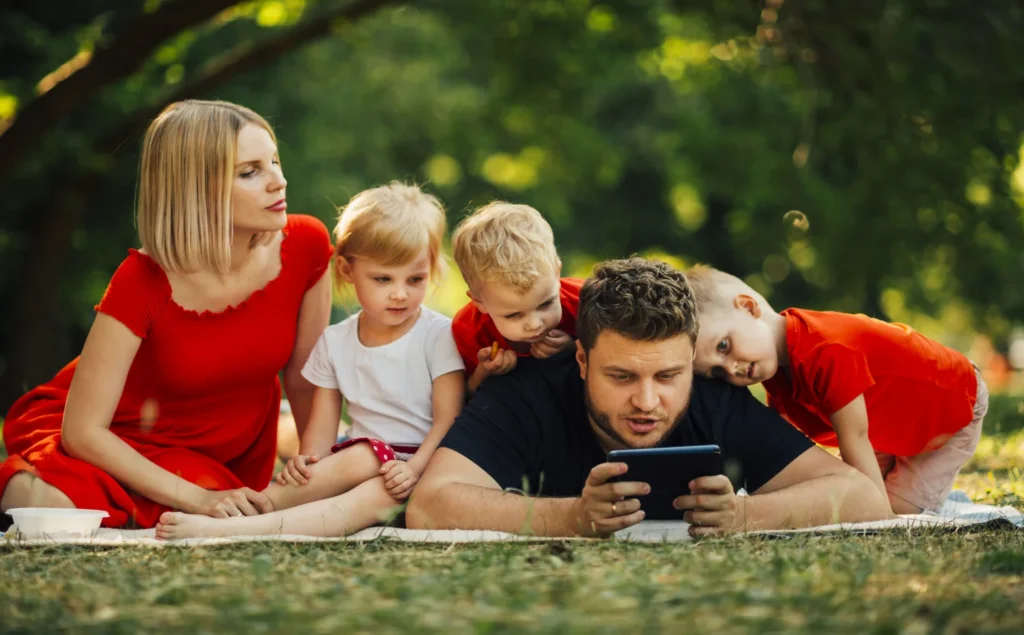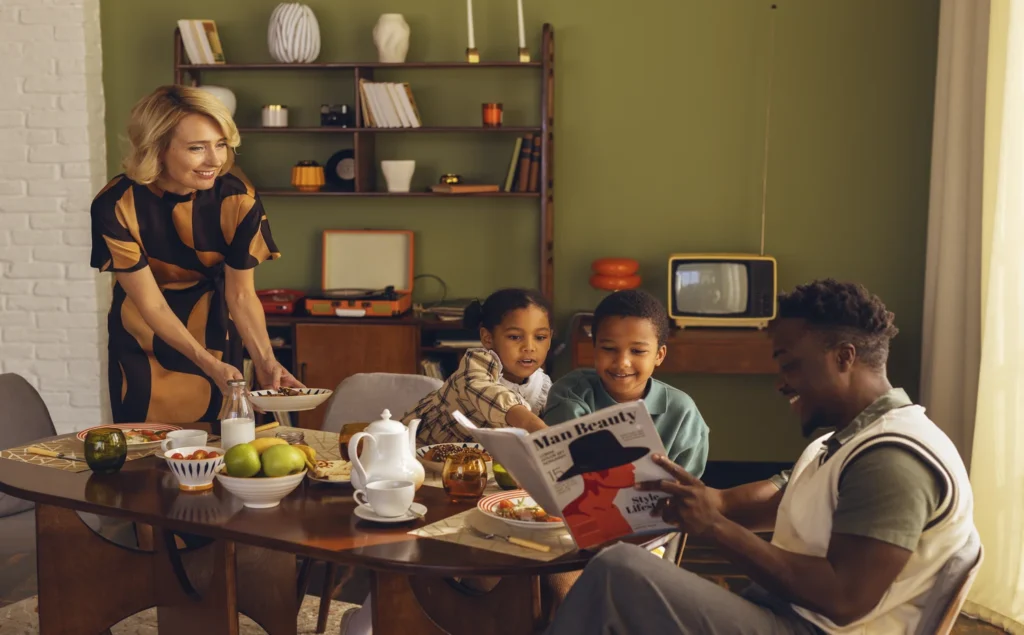Table of Contents
Introduction
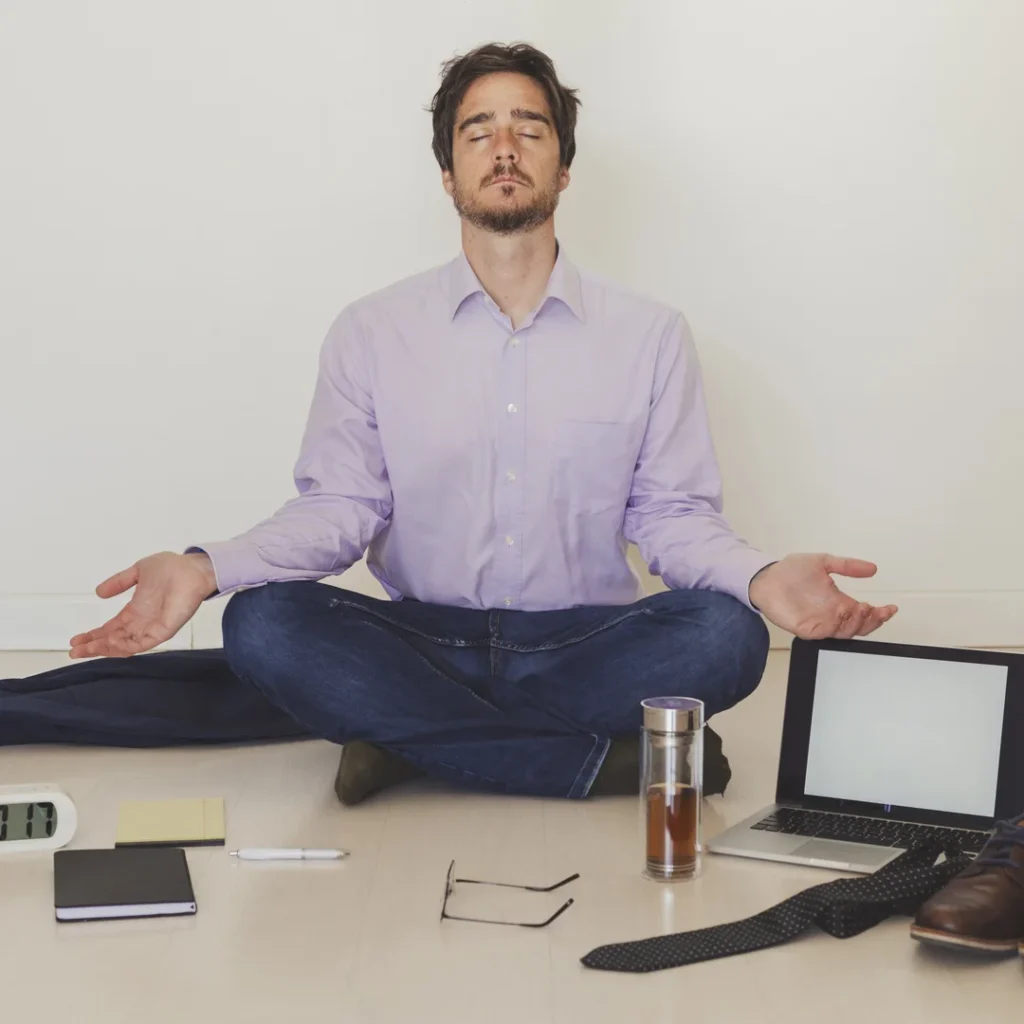
If you’re like most adults today, your day probably starts with a notification and ends with one too. Emails, meetings, family responsibilities, and that never-ending to-do list—everything seems to blur into one continuous stream. And in the midst of all that noise, finding even five quiet minutes to just be feels impossible.
But here’s something worth considering: what if you didn’t have to choose between being productive and being at peace? What if the secret to feeling more grounded in this hectic world wasn’t doing more—but doing less, with more intention?
That’s where mindful living comes in. It’s not about adding another task to your busy schedule—it’s about changing how you move through it.
What Does Mindful Living for Busy Adults Really Mean?
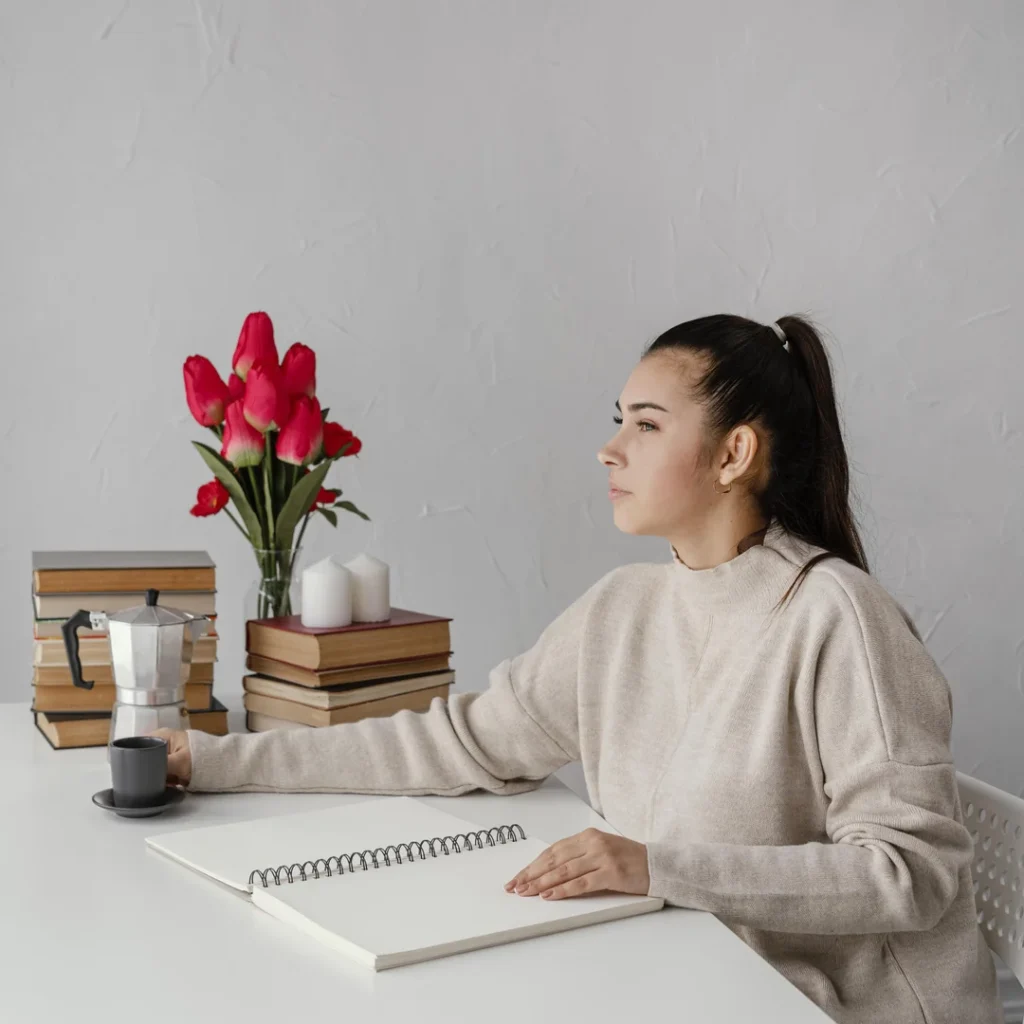
Mindful living isn’t about having hours to spare or becoming a meditation expert. It’s about showing up fully in the small moments that already exist in your day. That could mean actually tasting your morning coffee instead of gulping it down while checking Slack. Or noticing how the sun feels on your skin during your commute. It’s about slowing down just enough to reconnect with yourself—even if it’s just for a few breaths.
At Roots, Wings, and Wellness, we believe wellness isn’t something you check off a list. It’s something you live. And in 2025, with distractions more plentiful than ever, mindful living isn’t just helpful—it’s necessary.
The Real-Life Challenges of Practicing Calm in 2025

Let’s be honest: it’s not easy to “be mindful” when you’re pulled in twenty directions.
You’ve got deadlines. A packed calendar. Maybe kids who need your attention. Or maybe you’re trying to grow a side hustle after your 9-to-5. The pressure to “be everywhere” can feel overwhelming.
That’s exactly why mindfulness isn’t a luxury—it’s a lifeline.
Mindful living for busy people doesn’t mean becoming someone you’re not. It means finding ways to breathe deeper, think clearer, and feel more grounded in your own skin—even when life doesn’t slow down.
Data Insights
Studies show that mindfulness for busy people can have a significant impact on stress reduction and emotional well-being. According to the American Psychological Association, mindfulness practices can reduce stress by up to 58%, helping adults feel more balanced amidst their hectic schedules.
Research from Harvard Health highlights that mindfulness routines in 2025 can improve focus and productivity, which is essential for busy professionals juggling multiple tasks.
The National Institutes of Health also notes that regularly practicing mindfulness can improve emotional regulation by up to 30%, a crucial factor for adults managing stress and maintaining mental wellness.
These statistics underscore the importance of mindfulness for stress relief—helping reduce stress, improve mental clarity, and enhance emotional resilience, particularly for those living busy lives.
Small, Doable Ways to Add Calm to Your Day

You don’t need a meditation app or a yoga mat to start living mindfully. You just need to be present for what’s already happening. Here’s how:
Morning Grounding (2–5 minutes)
Before checking your phone, sit up in bed, close your eyes, and take five slow breaths. Ask yourself: “What do I need from today?” Not in terms of tasks, but in terms of energy. Peace? Focus? Flexibility? Start your day with that intention.
Mindful Meals
Pick one meal each day to eat without distractions. No phone, no TV. Just you, your food, and your senses. Notice the flavors, the textures. Eating slowly helps digestion—and reminds you to appreciate simple things.
Tech Breaks
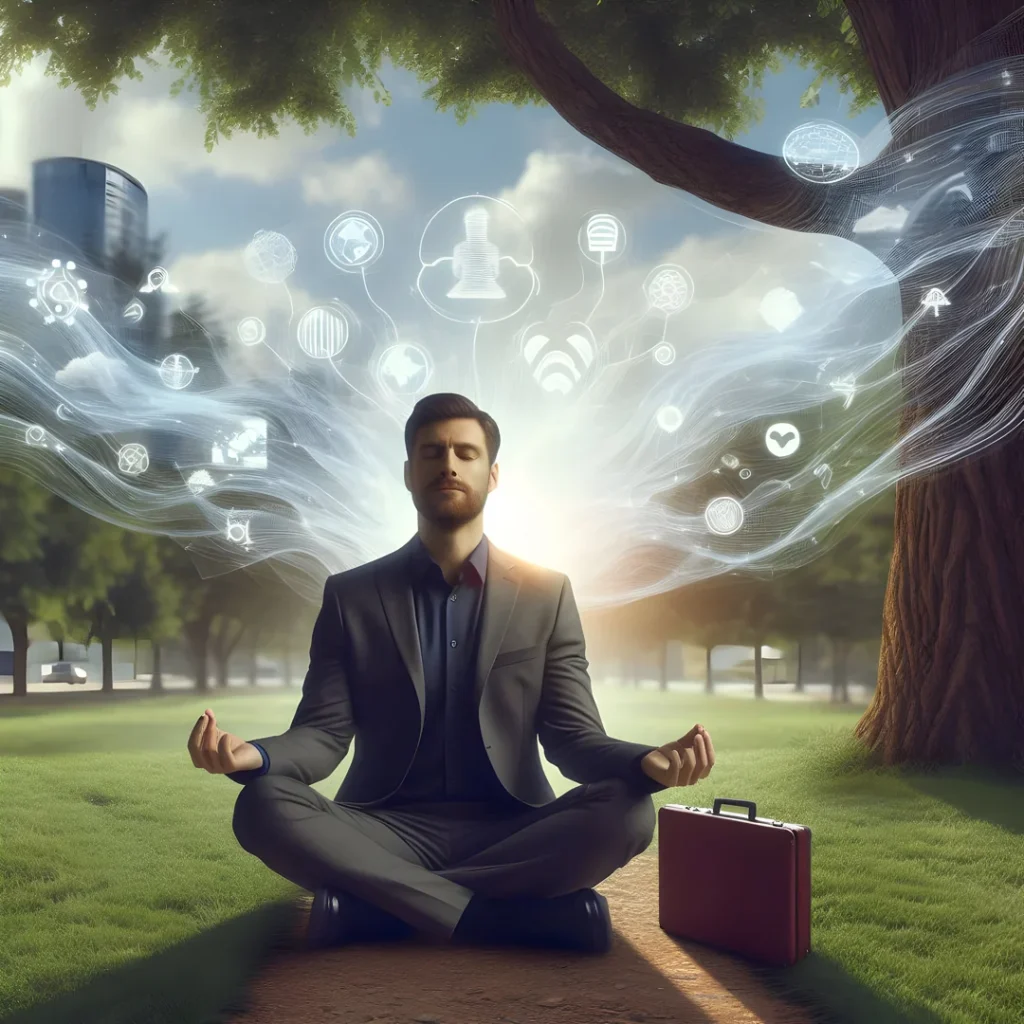
Set one 10-minute period each day where you go completely tech-free. It could be during your lunch break or right before bed. Use that time to breathe, journal, stretch, or just sit quietly.
Single-Tasking
Multitasking might feel productive, but it’s often the fastest road to burnout. Try focusing on just one thing at a time for a set period (say, 20–30 minutes). You’ll get more done and feel less frazzled.
Wind-Down Ritual
Pick one calming activity to end your day: light stretching, gratitude journaling, a cup of herbal tea. Let your body know it’s safe to slow down.
Making It Work For You

- The biggest mistake people make with mindfulness? Thinking they have to do it perfectly.
- But mindful living isn’t about perfection—it’s about presence.
- You don’t have to meditate for 30 minutes or escape to a silent retreat. You just have to find what feels calming for you. For some people, it’s walking the dog without headphones. For others, it’s pausing to breathe before answering an email. There’s no wrong way to begin—there’s just the next right step for you.
- And the beauty of mindfulness is that it meets you where you are. Busy schedule and all.
The Ripple Effect of Tiny Moments
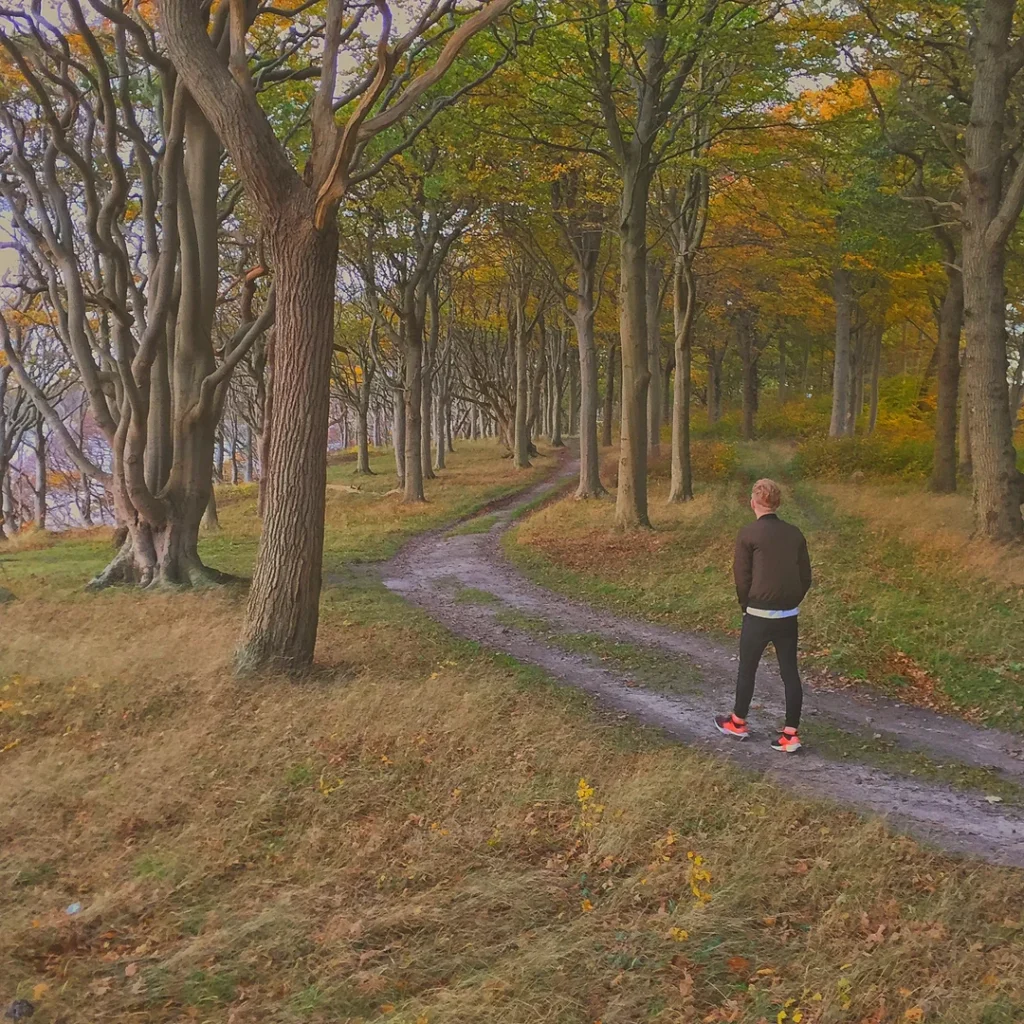
Here’s what happens when you start living with more awareness:
- You become more patient—with others and yourself.
- Your thoughts feel less chaotic.
- You stop reacting out of habit and start choosing your responses.
- You notice beauty in ordinary things—a laugh, a breeze, the smell of your morning coffee.
And gradually, life starts to feel lighter.
Because when you’re fully present, even in brief moments, you’re not just surviving the day—you’re actually living it.
Final Thoughts: Start Small, Stay Consistent
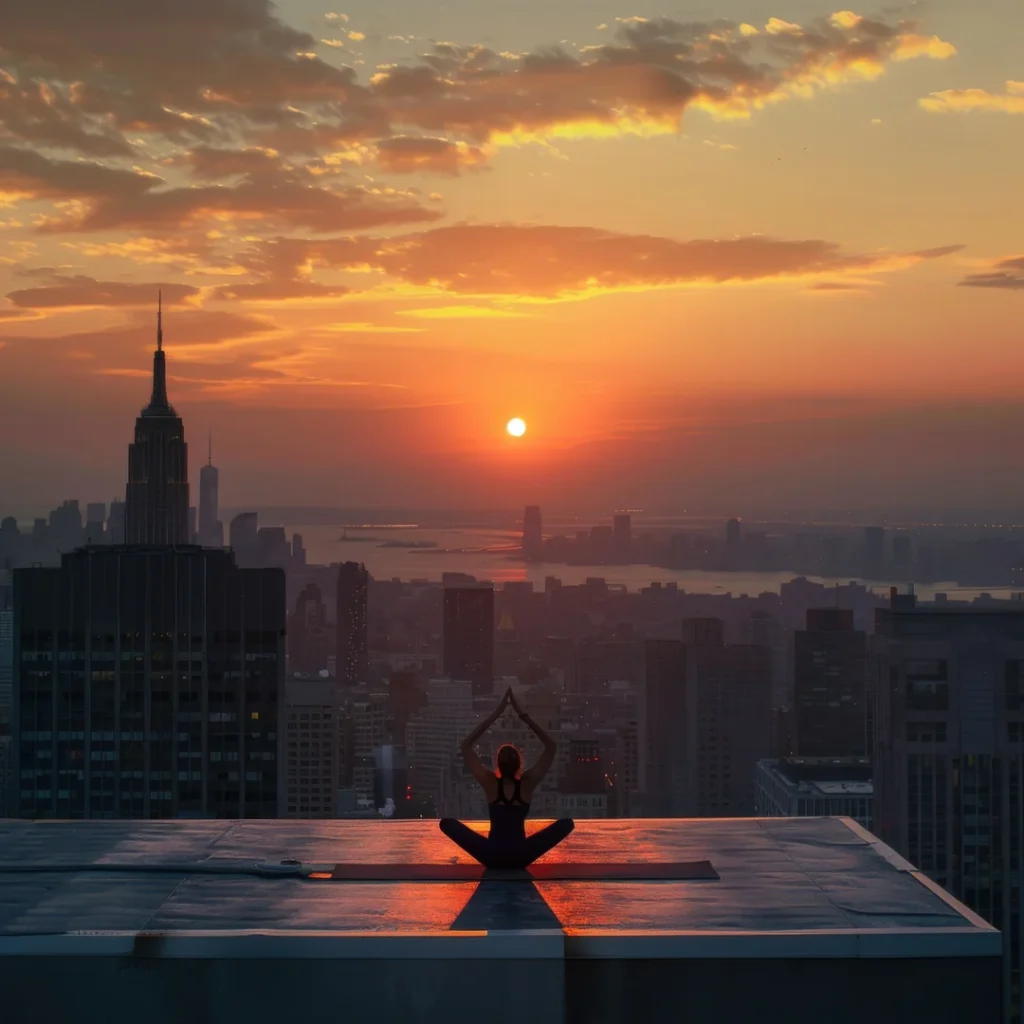
Mindful living for busy adults isn’t a trend—it’s a tool for thriving in a world that demands too much, too fast.
It starts with one breath. One pause. One choice to be where you are.
And the more you practice it, the easier it becomes to carry calm with you, no matter how packed your schedule is.
So ask yourself: Where can I find one moment of calm today? Then go find it. That’s your beginning.
For more real-life wellness guidance, explore other articles at Roots, Wings, and Wellness. We’re here to help you create a life that feels good on the inside, not just looks good from the outside.
Check out our insightful articles on personal growth and wellness at Roots, Wings & Wellness.
❓FAQs: Mindful Living for Busy Adults in 2025
Mindful living doesn’t mean sitting cross-legged for an hour a day—it’s simply about showing up for your life with more presence. If you’re juggling meetings, errands, and family life, mindfulness might look like taking three slow breaths before answering a message, or noticing the warmth of your coffee before that first sip. It’s those tiny check-ins that help you stay grounded even when life is full.
Start with pockets of calm, not giant gaps. Pause before switching tasks, close your laptop five minutes early to breathe, or keep your lunch phone-free. These aren’t time-wasters—they’re focus boosters. When you make room for even small moments of calm, the rest of your day flows more smoothly.
Absolutely. That’s actually part of the process. The goal isn’t to stop your thoughts—it’s to notice when your attention drifts, and gently bring it back. And mindfulness doesn’t have to mean silent meditation. Try walking without your phone, drawing, or even just washing dishes slowly. Presence can live in the ordinary.
It’s much more than a trend. Decades of research support the benefits of mindfulness, especially for stress and anxiety. It’s been shown to calm the nervous system, improve sleep, and help you respond to challenges with more clarity. Best of all, it’s something you can start doing right now—without needing a single app or subscription.
Great question. The key is to keep it simple and consistent. Try these:
- A five-minute breathing break after lunch
- A no-screen rule during dinner
- Checking in with your body before your first meeting
- Stretching while the coffee brews
- Taking a mindful walk without earbuds
Even one of these can shift the tone of your whole day.
That guilt is common—but it doesn’t serve you. Rest isn’t laziness; it’s how you recharge. Think of it like plugging in your phone—you wouldn’t wait until it dies to charge it. You deserve that same care. The more you normalize breaks, the easier it becomes to take them without guilt.
You’ll start to notice subtle changes: a bit more patience with your kids, a clearer head during tough conversations, or feeling less overwhelmed by small things. It’s not about becoming a zen master overnight—it’s about feeling a little more like yourself each day.



